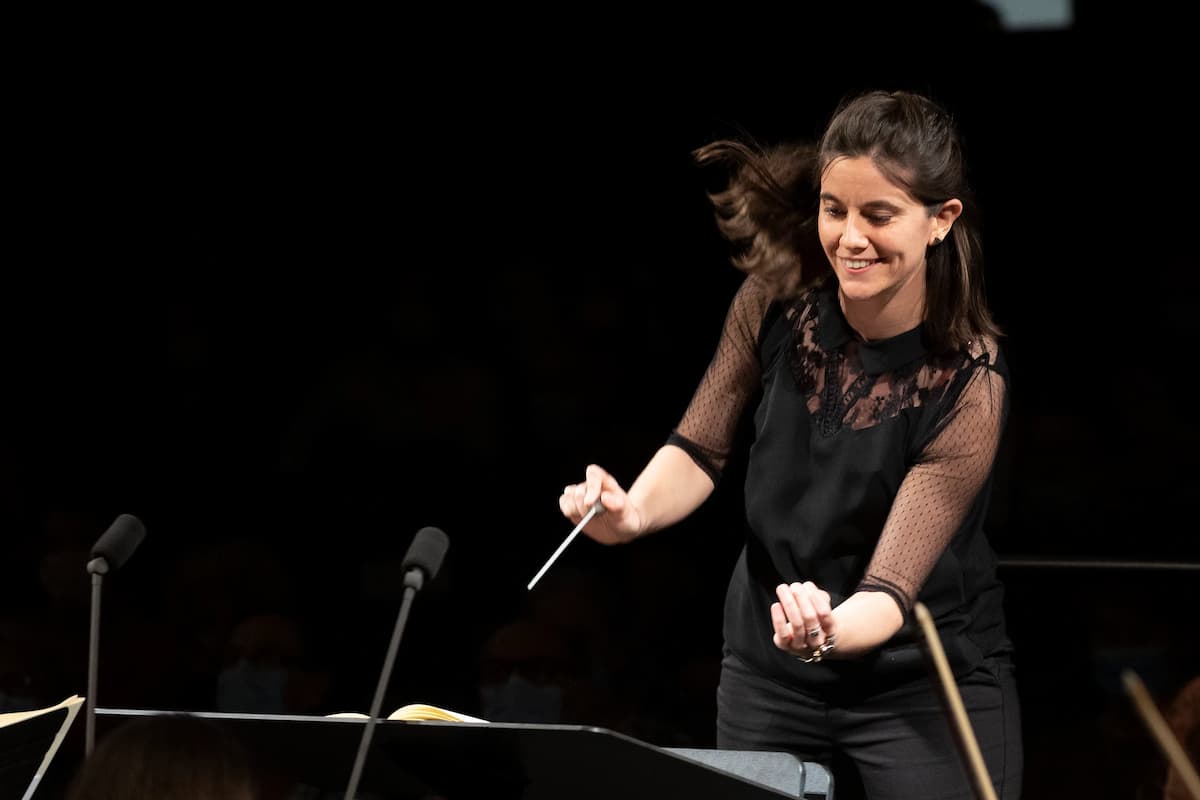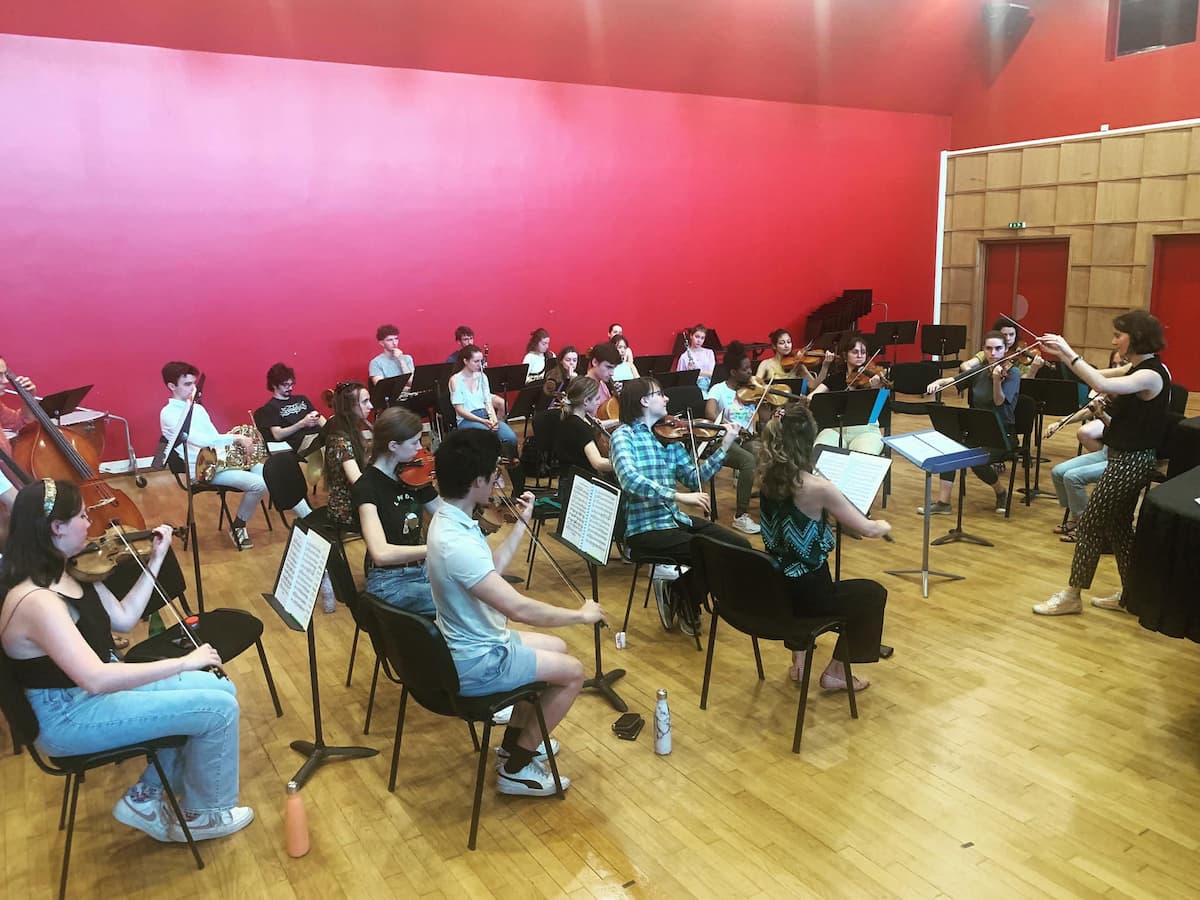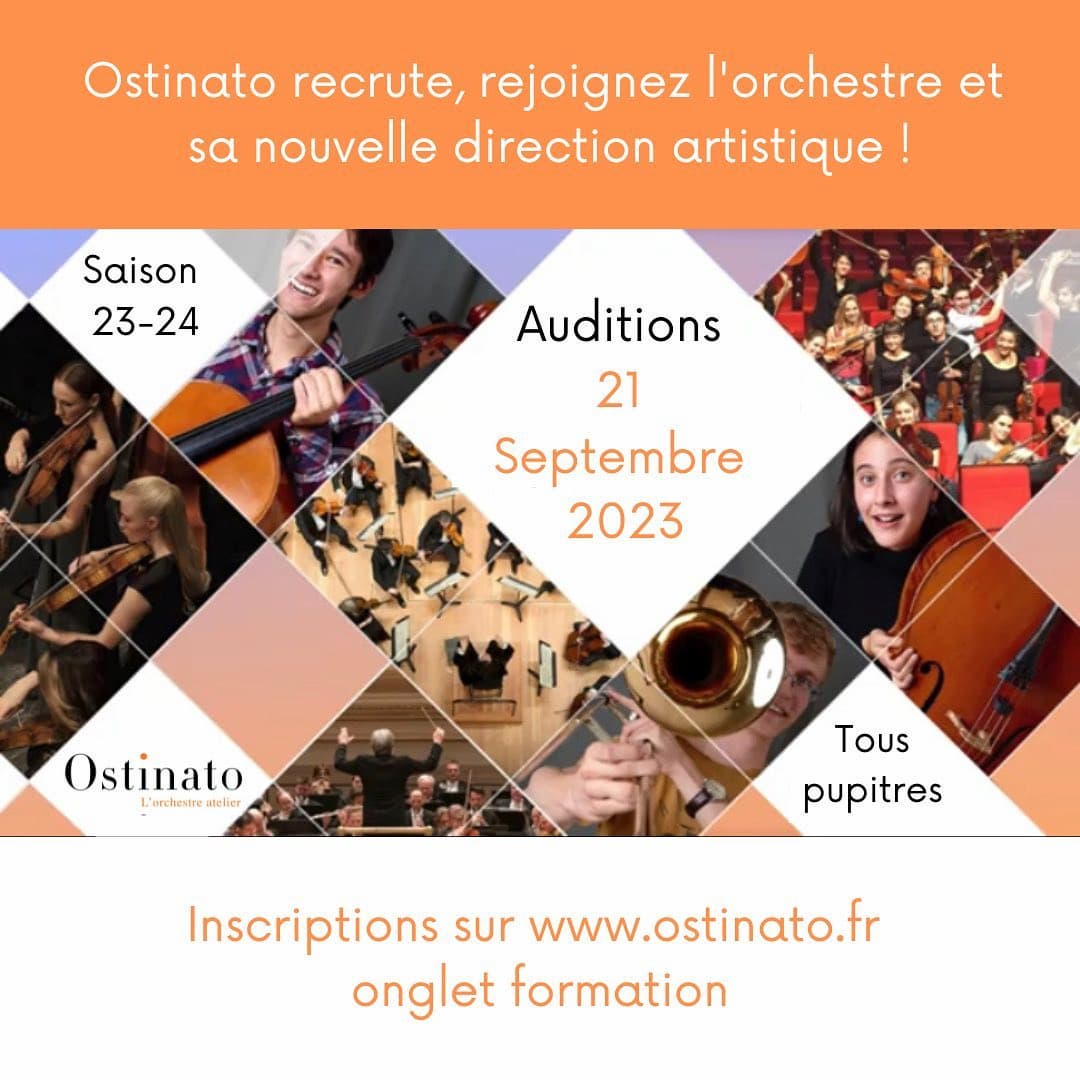Describing itself as a ‘springboard for young musicians’, Orchestre Ostinato is a Paris-based orchestral academy for young talent, designed to bridge the awkward gap between studying and the profession. The two-year apprenticeship offers paid opportunities for young musicians to get to know core orchestral repertoire through intensive rehearsals and concerts, in addition to participating in side-by-side schemes with established ensembles, including l’Académie de l’Opéra national de Paris, to build experience of the profession from within.

Chloé Dufresne © Yves Petit
Alongside its regular concert work, performing everything from baroque to contemporary music, classical, ballet, and opera, Orchestre Ostinato undertakes many educational and community projects, an initiative that Chloé Dufresne, one of the orchestra’s five Artistic Directors, strongly believes in.
Dufresne, a conductor of international renown, having worked with the Helsinki Philharmonic Orchestra, Orchestre de Chambre de Paris, and Los Angeles Philharmonic, is now at the helm of Ostinato along with conductor Julien Leroy, pianist/conductor Jean-François Heisser, cellist Anne Gastinel and violinist Pierre Fouchenneret.
The appointment of five Artistic Directors of Ostinato was part of a recent announcement of a new direction for the orchestra, and I chatted to Dufresne about her hopes for the organisation and the vibrancy and versatility that having a varied board of directors inspires in the young participants.
Concert de l’Orchestre Atelier Ostinato Dvorak/Rimsky-Korsakov
How did you and the other Artistic Directors come to be involved with Orchestre Ostinato?
I knew Julien Leroy by name, but I’d never met him before. He contacted me and asked if I would be interested in this kind of orchestra, and how we could imagine a new musical direction full of new ideas.
We decided this orchestra should have new energy for its new era, a younger energy, one which also maybe should attract different players from different backgrounds and from different countries.
Julien Leroy and I take care of organising masterclasses, reading extracts from different symphonies, and conducting most of the concerts.
We also have our mentors, including Jean-François Heisser, and we also decided to have two soloists. We thought that we needed to have a good string level in the orchestra; Anne and Pierre have their careers but are also very involved in education and pedagogy.
We thought it would be a good idea for them to give masterclasses and be involved, so we asked them, and they accepted – and that’s how we became five people!
The range of projects that Orchestre Ostinato has is very inspiring. How important is the quality of adaptability in the musicians of today?

Orchestre Ostinato at rehearsal © Orchestre Ostinato
Adaptability is a big direction we want to take. Nowadays a player in an orchestra has to be able to play everything: contemporary music, baroque music, opera, and so on. To be a freelance player you have to do everything, and so of course this is something we develop a lot.
What do you hope for the young musicians to walk away with at the end of their two years at Ostinato?
My wish is that they discover some composers that they hadn’t heard before, and also that they will have played one Beethoven symphony, one Brahms symphony: something from every ‘main’ composer.
I also hope that they leave as friends, that they play music as friends, and that they have a love of playing in an orchestra and playing with other people.
I’ve noticed that in France, we don’t have the culture that is in the UK or Germany of orchestral playing. We don’t have that many apprenticeships or situations where we play in orchestras, and so this ‘collective’ thing is something that can really be developed in our society in France.
So, I wish that all the players who pass the audition to be in Ostinato finish with a love of orchestras and that they all win jobs in orchestras after that!
En Musique pour plus d’humanité au Grand Palais Ephémère
Any project you’re excited about in particular?
There is one project that we do every year, a big social project where prison residents join the orchestra to play percussion with us. Every week we do workshops in prisons to teach percussion and then we join together on stage to perform.
There are many groups like this with whom we work every week, including in prisons and with refugees. We have a big concert with all of these people and the orchestra, and this is a very profound project. There isn’t the same audience as usual, it’s not the same players, and everybody takes something from this event.
Last year when I did it, I felt like it was really important to do and very significant. This is a project that we will keep, every year, in a prominent place.
We are also planning to have a side-by-side project with a professional orchestra, where we’ll have one-to-one coaching. This lets us do concerts with big orchestras, and I think it will be amazing. I’m really looking forward to these collaborations so much.
In educational scenarios, the teacher often learns something about themselves, alongside the learning the students absorb from the teacher. Is there anything you’ve learned about yourself from these young people during this process?

© Orchestre Ostinato
I haven’t worked so much with this year’s orchestra yet, but there are many things. I’m inspired by their love of music and their motivation to do something perfectly. When we think we’re being picky or demanding as conductors they still want to learn and still want to do it.
This is something I really want to keep for myself, year after year, because I have noticed that with professional orchestras it can be harder to get what you want, and I really felt that the younger players have motivation, but also hope. We have to figure out how to keep this joy. I think we are all responsible for our joy, and this is something that young people have naturally. When we become older, we need to preserve and cultivate this.
The musicians in Ostinato won’t have played many of these pieces before, so there is no tradition in them, and we can do whatever we want, it’s very free. This is very powerful, in a way, and for all of us five directors, to see how things can be done differently from how we’re used to doing them is wonderful.
For more of the best in classical music, sign up for our E-Newsletter




